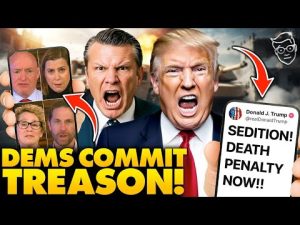In a gripping tale of heroism and political absurdity, a former soldier shares the harrowing experiences of his platoon during the tumultuous years of the Iraq War. This soldier’s journey highlights an unsettling reality: the dangers of mixing military duty with party politics. His story isn’t just an account of a soldier’s valor; it’s a stark reminder that lives hang in the balance when military decisions are influenced by political gamesmanship.
This seasoned veteran recalls a particularly tense encounter with a notorious figure dubbed the “Butcher of Fallujah.” This was no ordinary criminal; he was responsible for heinous acts, including the brutal murder of American contractors, one of whom was a Seal brother. The soldier’s platoon, faced with the decision to hold this man accountable, exercised remarkable restraint. They captured him with the hope of interrogation that could save lives, despite the looming threat of their own safety. All of this was done under the orders and supervision of their superiors. However, rather than receiving commendations, the soldier and his comrades found themselves under scrutiny for alleged mistreatment during custody.
What followed was a political scandal that placed their lives at risk. While the military aimed for restraint and adherence to the rules of engagement, politicians merely saw headlines and opportunities to score points with the public. The soldier’s platoon, after navigating a fraught capture, faced the stark possibility of being court-martialed. In his view, this governmental mismanagement was the epitome of misplaced priorities—soldiers left hung out to dry while politicians played the hero next to comforting slogans.
This veteran insists that the repercussions of political meddling extend far beyond courtroom drama. The fear of punishment and political backlash can cause soldiers to hesitate in critical moments. He articulates a chilling concern: when the confidence to act is undermined, the results can be deadly. Soldiers may think twice before pulling the trigger or prosecuting an IED threat. The stakes, as illustrated by this soldier’s experience, are extraordinarily high, with fellow soldiers and innocents paying the price for indecision bred from political correctness.
Overall, the soldier’s story is not just about personal trials in the military; it highlights the broader implications of having politicians influence military operations. His vivid recounting serves as a critical wake-up call to reconsider how partisan politics can impact the safety and efficacy of the troops. At the heart of his message lies a fierce pride in service—a devotion to duty amid an often chaotic and unpredictable political landscape. As he reflects on these experiences, it becomes clear that the sacrifices of soldiers must be taken seriously, not as pawns in a political chess game. The safety of troops, and indeed innocent lives, depend on recognizing military service as a calling rather than a bargaining chip in ideological spats.







